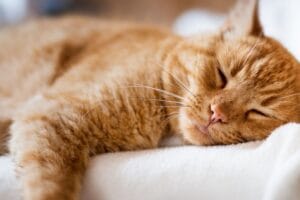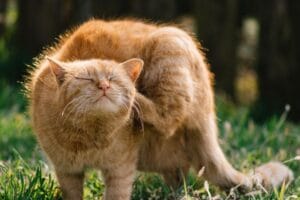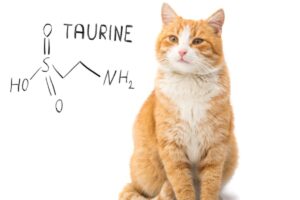Can Cats Eat White Bread: Everything You Need to Know
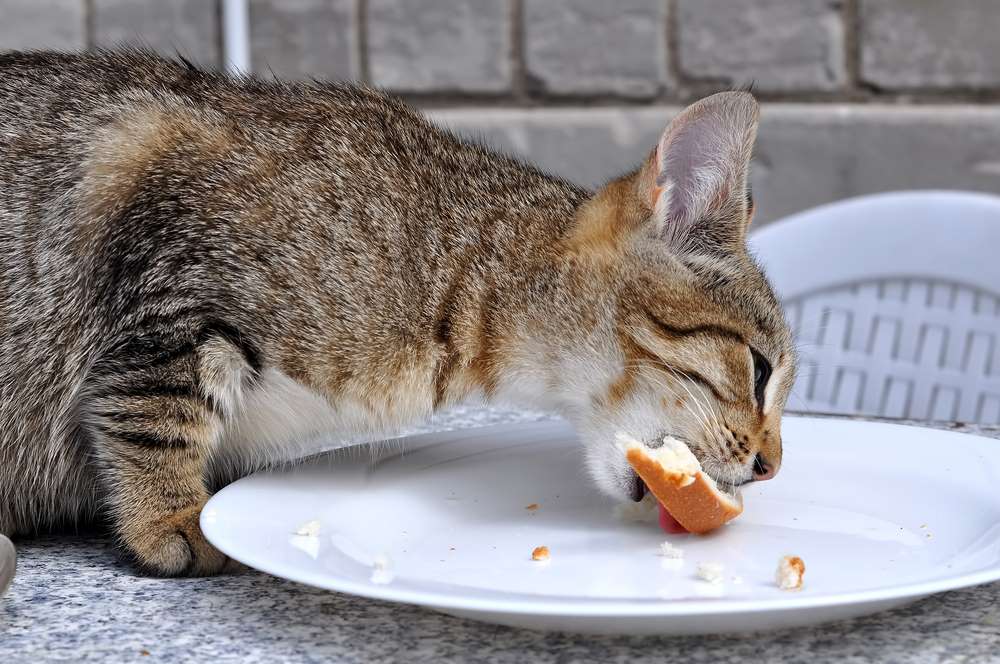
As cat owners, we strive to provide the best diet for our furry companions. However, with the wide variety of foods available, it’s essential to understand what is safe and appropriate for our cats to consume. One common question that arises is whether cats eat white bread. In this article, we will delve into this topic, exploring the nutritional aspects of white bread and the potential risks it may pose to our feline friends.
Understanding a Cat’s Diet
Cats have evolved as carnivores, and their bodies have adapted to efficiently digest and absorb nutrients from animal-based proteins. Protein is essential for cats as it provides the necessary amino acids for muscle maintenance, growth, and overall body function. Fats are another crucial component of a cat’s diet as they are a concentrated source of energy and aid in the absorption of fat-soluble vitamins.
Unlike humans and some omnivorous animals, cats lack the necessary enzymes to break down and utilize carbohydrates effectively. Their short digestive tracts and limited ability to produce certain enzymes make it challenging for them to extract nutrients from plant-based foods. While small amounts of carbohydrates may be tolerated by some cats, they do not have a nutritional requirement for carbohydrates in the same way they do for protein.
Considering these factors, it becomes evident why white bread, which is primarily composed of refined carbohydrates, is not an ideal food choice for cats. Feeding them a diet predominantly consisting of carbohydrates can lead to various health issues, such as obesity, diabetes, and digestive problems.
To ensure optimal health and meet their nutritional needs, it is crucial to prioritize animal-based proteins in a cat’s diet. High-quality commercial cat foods formulated with real meat as the primary ingredient are designed to provide the necessary nutrients in balanced proportions. By understanding and respecting their unique dietary requirements, we can support our feline companions in leading happy and healthy lives.
White Bread: Nutritional Analysis
White bread has a lot of nutritional value. Here is a more detailed analysis of the nutritional content for white bread:
- Carbohydrates: White bread is primarily composed of carbohydrates, which are the main source of energy. However, cats have a limited ability to digest and utilize carbohydrates, and they do not have a nutritional requirement for them.
- Protein: White bread contains a small amount of protein, but it is not a sufficient or high-quality source of protein for cats. Cats need animal-based proteins to fulfill their specific amino acid requirements.
- Fat: White bread typically has a low fat content. While cats require moderate amounts of fat in their diet, white bread does not provide the essential fatty acids that are crucial for their overall health.
- Vitamins and minerals: White bread is deficient in essential vitamins and minerals. The refining process removes the nutrient-rich components of the wheat, resulting in a product with little nutritional value. Cats require specific vitamins and minerals, such as vitamin A, vitamin D, taurine, and calcium, which are not adequately provided by white bread.
Feeding white bread to cats as a significant part of their diet can lead to imbalances and deficiencies in essential nutrients. It may contribute to weight gain, digestive issues, and a lack of proper nourishment. Therefore, it is best to avoid feeding white bread to cats and instead focus on providing them with a balanced diet that meets their unique nutritional requirements.
Can Cats Eat White Bread?
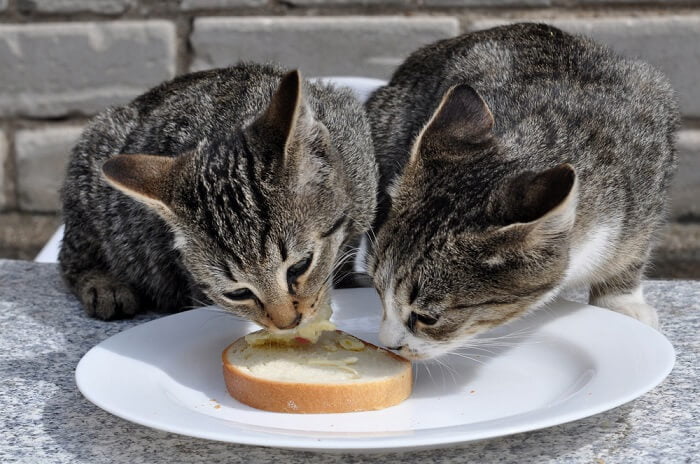
The short answer is yes, cats can consume small amounts of white bread without immediate harm. However, it should not be a regular part of their diet. Cats are obligate carnivores, meaning their bodies are designed to primarily thrive on animal-based protein. White bread, being a plant-based food, lacks the essential nutrients that cats require for optimal health. It is devoid of important vitamins, minerals, and dietary fiber.
Feeding white bread in excess can lead to potential health issues in cats. The high carbohydrate content in white bread can contribute to weight gain, obesity, and related conditions like diabetes. Cats have a limited ability to metabolize carbohydrates, and their bodies are better adapted to utilizing proteins and fats for energy.
Instead of white bread, it is recommended to focus on providing cats with a more natural diet. As this is what they are better suited for, while small amounts of white bread cannot hurt, they are used to eating protein based meat that helps keep them healthy and happy in the long run.
Potential Issues and Concerns
While cats may show interest in white bread due to its texture and smell, it is crucial to understand that their bodies are not designed to process or derive optimal nutrition from this food. Here are some reasons why white bread should be limited or avoided in a cat’s diet:
- Lack of essential nutrients: White bread is highly processed and lacks the vital nutrients that cats need for their overall well-being. It is deficient in essential vitamins, minerals, and dietary fiber that are necessary for their health.
- High carbohydrate content: Cats are obligate carnivores and have a limited ability to digest and utilize carbohydrates. Their bodies thrive on animal-based proteins and fats rather than carbohydrates. Feeding them excessive amounts of white bread can lead to weight gain, diabetes, and other metabolic issues.
- Potential for gastrointestinal upset: Cats’ digestive systems are sensitive, and consuming white bread can disrupt their digestive balance. It may result in gastrointestinal issues like diarrhea, vomiting, or bloating.
- Empty calories: White bread is calorie-dense but offers little nutritional value. Feeding it to cats can lead to excessive calorie intake without providing the necessary nutrients, potentially leading to weight gain and nutritional deficiencies.
While an occasional small piece of white bread may not cause immediate harm, it is best to prioritize a cat’s nutritional needs by offering them a balanced and species-appropriate diet. High-quality commercial cat foods that are specifically formulated to meet their dietary requirements are a better choice. Consult with a veterinarian for personalized dietary recommendations to ensure your cat receives the optimal nutrition they need for a healthy and happy life.
Impact on Nutrient Absorption
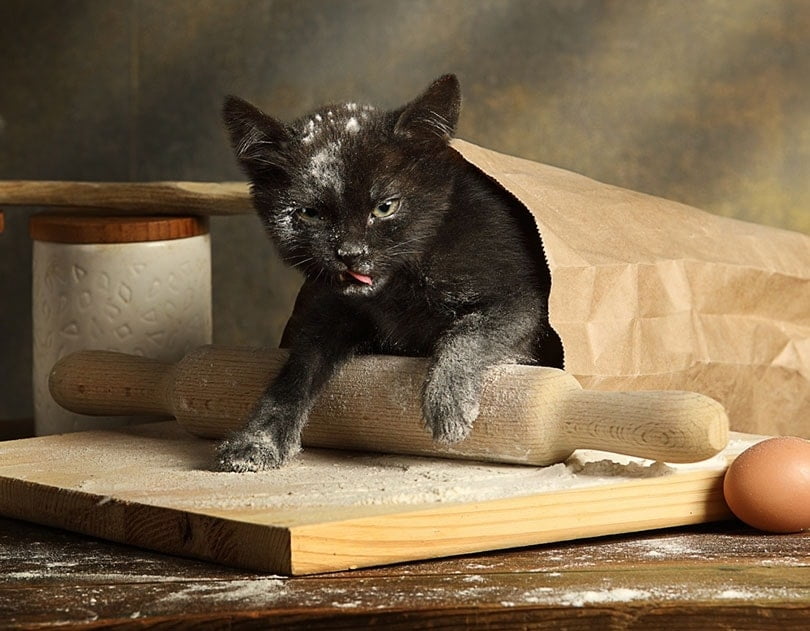
Another factor to consider is the impact of white bread on the absorption of vital nutrients from a cat’s regular diet. Cats require a balanced and complete diet that includes essential amino acids, vitamins, and minerals to support their overall health. White bread, being nutritionally poor and lacking in essential nutrients, may interfere with the absorption of these vital substances.
When cats consume white bread, it takes up space in their stomach and digestive system that could otherwise be utilized for nutrient-rich foods. This can result in reduced appetite for their regular cat food, leading to inadequate intake of essential nutrients. Over time, this can potentially lead to nutrient deficiencies and compromise their overall health and well-being.
To ensure that cats receive the necessary nutrients, it is best to focus on providing them with a balanced and appropriate cat food that meets their nutritional requirements. This way, they can obtain all the essential nutrients they need without the interference of nutritionally deficient foods like white bread.
Alternatives to White Bread
Instead of relying on white bread as a potential treat or addition to your cat’s diet, it is advisable to prioritize nutritionally balanced cat foods that are specifically formulated to meet their unique dietary requirements. High-quality commercial cat foods are designed to provide the necessary nutrients, including animal-based proteins, that cats need for optimal health.
If you’re looking to offer treats to your feline companion, there are numerous safe and healthy alternatives available that are specifically created with cats in mind. Consider options like freeze-dried meat treats, which retain the nutritional value of the meat while providing a delicious and satisfying snack. These treats often come in various protein options, such as chicken, turkey, or fish, allowing you to cater to your cat’s preferences.
Additionally, pet stores offer a wide range of cat-friendly snacks that are formulated with the nutritional needs of cats in mind. These treats are typically made with high-quality ingredients and are free from additives or fillers that may be present in human foods like white bread.
By opting for these alternative treats and snacks, you can provide your cat with enjoyable and nutritious options that support their overall health and well-being while avoiding the potential risks and nutritional deficiencies associated with white bread consumption.
Consulting a Veterinarian
Consulting a veterinarian is highly recommended when it comes to your cat’s diet and nutritional needs. They are experts in feline health and can provide valuable guidance tailored to your cat’s specific requirements.
A veterinarian can assess your cat’s overall health, take into account any underlying medical conditions, and provide recommendations on the best diet for your furry friend. They can help you understand the potential risks and benefits of feeding white bread or any other human food to your cat.
By seeking professional advice, you can ensure that your cat’s nutritional needs are being met and that their diet promotes optimal health and well-being. Your veterinarian can also address any concerns you may have and provide alternative dietary options that align with your cat’s individual requirements.
Remember that each cat is unique, and their dietary needs may vary. Consulting with a veterinarian is the best way to ensure that you are providing your cat with the appropriate diet and making informed decisions about their nutritional intake.
Conclusion
While cats can consume small amounts of white bread without immediate harm, it is not a suitable or necessary food for their overall health and well-being. As obligate carnivores, cats thrive on a diet rich in animal-based protein and minimal carbohydrates. Feeding them nutritionally balanced cat foods and appropriate treats ensures they receive the essential nutrients they need to lead a healthy and happy life. By prioritizing their dietary needs and consulting with a veterinarian, we can provide our feline friends with the best possible care and nutrition they deserve.
